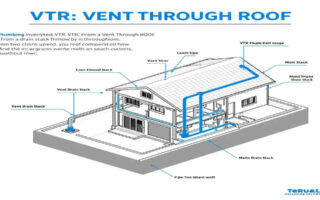Are you struggling with debt and considering bankruptcy? One of the biggest concerns for homeowners is whether they can keep their house after filing for bankruptcy. The good news is that it’s possible to keep your home, but it depends on several factors, including the type of bankruptcy you file and your state’s laws.
Understanding Bankruptcy Basics

Before we dive into the specifics of keeping your real estate house, let’s start with a brief overview of bankruptcy.
What is Bankruptcy?
Bankruptcy is a legal process that allows individuals and businesses to eliminate or repay their debts under the protection of the bankruptcy court. It’s designed to give people a fresh start and a chance to rebuild their financial lives.
Different Types of Bankruptcy
There are several types of bankruptcy, but the two most relevant for individuals are Chapter 7 and Chapter 13.
- Chapter 7 Bankruptcy: Also known as “liquidation” bankruptcy, Chapter 7 allows you to discharge most of your unsecured debts, such as credit cards and medical bills. However, you may have to surrender some of your assets to pay off your creditors.
- Chapter 13 Bankruptcy: Also known as “reorganization” bankruptcy, Chapter 13 allows you to create a repayment plan to pay off your debts over time. This type of bankruptcy is often preferred by homeowners because it will enable you to keep your assets, including your real estate house
How Bankruptcy Affects Debts and Assets
When you file for bankruptcy, your debts and assets are treated differently depending on the type of bankruptcy you file. In general, secured debts, such as your mortgage, are treated differently from unsecured debts, such as credit card debt.
The Bankruptcy Process and Timelines
The bankruptcy process can be complex and time-consuming. It typically involves filing a petition with the bankruptcy court, attending a creditors’ meeting, and completing a financial management course. The entire process can take several months to a year or more, depending on the type of bankruptcy and your specific circumstances.
How Bankruptcy Affects Homeownership
Now that we’ve covered the basics of bankruptcy, let’s dive into how it affects homeownership real estate house.
Secured vs. Unsecured Debts
When it comes to bankruptcy, it’s essential to understand the difference between secured and unsecured debts. Secured debts are those that are backed by collateral, such as your house or car. Unsecured debts, on the other hand, are not backed by collateral and include things like credit cards and medical bills.
The Role of Mortgage Debt
Your mortgage is a secured debt, meaning your house serves as collateral for the loan. If you fall behind on your mortgage payments, your lender has the right to foreclose on your real estate house to recover the money you owe.
What Happens to Your Mortgage When You File Bankruptcy?
When you file for bankruptcy, your mortgage is treated differently depending on the type of bankruptcy you file. In Chapter 7 bankruptcy, you may have to surrender your house if you’re behind on your mortgage payments or if the value of your home exceeds the homestead exemption in your state. In Chapter 13 bankruptcy, you can keep your house as long as you continue to make your mortgage payments and catch up on any arrears through your repayment plan.
Surrendering Your Mortgage vs. Keeping Your House
If you’re struggling to keep up with your mortgage payments, you may be tempted to surrender your house during bankruptcy. However, this should be a last resort, as it can have long-term consequences for your credit and your ability to buy a home in the future. If you want to keep your real estate house, you’ll need to work with your lender and your bankruptcy attorney to come up with a plan to catch up on your payments and keep your home.
How Foreclosure Relates to Bankruptcy
Foreclosure is the process by which your lender takes possession of your home if you default on your mortgage. If you’re facing foreclosure, filing for bankruptcy can provide temporary relief by stopping the foreclosure process. However, it’s essential to understand that bankruptcy is not a long-term solution to foreclosure, and you’ll need to work with your lender to develop a plan to keep your home.
Can I Keep My House If I File Bankruptcy? Chapter 7 Perspective
Now that we’ve covered the basics of how bankruptcy affects homeownership, let’s dive into the specifics of keeping your house under Chapter 7 bankruptcy.
What is Chapter 7 “Liquidation” Bankruptcy?
Chapter 7 bankruptcy is also known as “liquidation” bankruptcy because it involves selling off your non-exempt assets to pay off your creditors. This type of bankruptcy is typically used by individuals with little to no disposable income who are unable to repay their debts real estate house.
How Exemptions Work
When you file for Chapter 7 bankruptcy, you’re allowed to keep certain assets that are exempt under federal or state law. These exemptions are designed to help you maintain a basic standard of living and include things like your home, car, and personal belongings.
State vs. Federal Exemption Options
Each state has its own set of exemption laws, and some states allow you to choose between state and federal exemptions. When it comes to protecting your home, the homestead exemption is the most important. This exemption will enable you to retain a certain amount of equity in your home, and the amount varies by state.
Scenarios Where the Trustee Might Sell Your House
If the value of your home exceeds the homestead exemption in your state, the bankruptcy trustee may decide to sell your house to pay off your creditors. This can happen if you have significant equity in your home or are behind on your mortgage payments.
Factors That Determine If You Can Keep Your House
Whether you can keep your house under Chapter 7 bankruptcy depends on several factors, including:
- The value of your real estate house and the amount of equity you have
- The homestead exemption in your state
- Whether you’re current on your mortgage payments
- Your overall financial situation and ability to repay your debts
Suppose you’re considering filing for Chapter 7 bankruptcy and want to keep your real estate house. In that case, it’s essential to work with an experienced bankruptcy attorney who can help you navigate the process and protect your assets.
Can I Keep My House If I File Bankruptcy? Chapter 13 Perspective

Now that we’ve covered Chapter 7 bankruptcy, let’s take a look at how Chapter 13 bankruptcy affects homeownership.
What is Chapter 13 “Reorganization” Bankruptcy?
Chapter 13 bankruptcy is also known as “reorganization” bankruptcy because it allows you to create a repayment plan to pay off your debts over time. This type of bankruptcy is often preferred by homeowners because it will enable you to keep your assets, including your real estate house.
How Chapter 13 Allows You to Catch Up on Mortgage Arrears
If you’re behind on your mortgage payments, Chapter 13 bankruptcy can provide you with a way to catch up on your arrears over time. Your repayment plan will typically include a monthly fee that covers your ongoing mortgage payments and a portion of your arrears.
Impact on Mortgage Payments and Loan Modifications
When you file for Chapter 13 bankruptcy, your mortgage payments are typically not affected. real estate house, you can negotiate a loan modification with your lender to make your payments more affordable. A loan modification can involve reducing your interest rate, extending the term of your loan, or even reducing the principal balance.
Benefits of Chapter 13 for Homeowners at Risk of Foreclosure
If you’re facing foreclosure, Chapter 13 bankruptcy can provide you with several benefits, including:
- Stopping the foreclosure process temporarily
- Allowing you to catch up on your mortgage arrears over time
- Giving you time to negotiate a loan modification with your lender
- Protecting your real estate house from being sold to pay off your creditors
Limits and Eligibility Requirements for Chapter 13 Homeowners
To be eligible for Chapter 13 bankruptcy, you must have a regular source of income, and your secured debts, including your mortgage, must be less than $1,184,200. You must also be able to create a feasible repayment plan that allows you to pay off your debts over time.
Suppose you’re considering filing for Chapter 13 bankruptcy and want to keep your real estate house. In that case, it’s essential to work with an experienced bankruptcy attorney who can help you navigate the process and create a repayment plan that works for you.
Key Considerations and Strategies to Keep Your House
Now that we’ve covered the basics of real estate house bankruptcy affects homeownership, let’s dive into some key considerations and strategies to help you keep your house.
Importance of Timely Mortgage Payments and Financial Planning
One of the most important things you can do to keep your house after filing for bankruptcy is to make your mortgage payments on time. This shows your lender that you’re committed to keeping your real estate house and can help you avoid foreclosure.
It’s also essential to create a budget and stick to it. This will help you manage your finances and ensure that you have enough money to make your mortgage payments each month.
Using Exemption Laws Effectively
As we mentioned earlier, exemption laws can help you protect your real estate house during bankruptcy. To use these laws effectively, you’ll need to work with an experienced bankruptcy attorney who can help you navigate the process and maximize your exemptions.
Negotiating with Lenders Before and During Bankruptcy
If you’re struggling to make your mortgage payments, it’s essential to communicate with your lender and try to negotiate a solution. This could involve a loan modification, a forbearance agreement, or even a short sale.
During bankruptcy, your attorney can help you negotiate with your lender to come up with a plan to keep your home. This may involve catching up on your arrears through your repayment plan or negotiating a loan modification.
The Role of Reaffirmation Agreements
A reaffirmation agreement is a legal document that allows you to keep your house after filing for Chapter 7 bankruptcy. By signing a reaffirmation agreement, you agree to continue making your mortgage payments and keep your real estate house even though you’re no longer personally liable for the debt.
However, reaffirmation agreements can be risky, as they can keep you in debt even after bankruptcy. It’s essential to work with an experienced bankruptcy attorney who can help you understand the risks and benefits of a reaffirmation agreement.
Alternatives to Bankruptcy for Struggling Homeowners
If you’re struggling to keep up with your mortgage payments, bankruptcy may not be your only option. Several alternatives to bankruptcy can help you keep your home, including:
- Loan Modifications: A loan modification can help you reduce your monthly mortgage payments by changing the terms of your loan.
- Short Sales: A short sale allows you to sell your real estate house for less than you owe on your mortgage, with the lender’s approval.
- Deed instead of Foreclosure: A deed instead of foreclosure allows you to voluntarily transfer ownership of your home to your lender to avoid foreclosure.
It’s essential to work with an experienced real estate attorney who can help you understand your options and choose the best solution for your situation.
Real Estate Tips for Bankruptcy Filers

If you’re considering filing for bankruptcy and want to keep your real estate house there are several real estate tips you should keep in mind.
How Bankruptcy Impacts Future Real Estate Purchases and Sales
Bankruptcy can have a significant impact on your ability to buy or sell a home in the future. After filing for bankruptcy, you may have to wait several years before you can qualify for a mortgage again. Additionally, your credit score may be affected, making it harder to get approved for a loan.
If you’re planning to sell your real estate house after bankruptcy, you may have to disclose your bankruptcy status to potential buyers. This can affect the sale price of your home and the length of time it takes to sell.
What Buyers and Sellers Should Know Post-Bankruptcy
If you’re buying a home after bankruptcy, it’s essential to work with an experienced real estate attorney who can help you navigate the process. You may have to wait several years before you can qualify for a mortgage again, and you may have to pay a higher interest rate due to your credit score.
If you’re selling a home after bankruptcy, it’s essential to be upfront with potential buyers about your bankruptcy status. This can help you avoid any legal issues down the road and ensure a smooth sale process.
Effect on Credit Score and Mortgage Eligibility
Bankruptcy can have a significant impact on your credit score and your ability to qualify for a mortgage. After filing for bankruptcy, your credit score may drop significantly, and you may have to wait several years before you can be eligible for a mortgage again.
However real estate house, it’s important to remember that bankruptcy is not the end of the world. With time and effort, you can rebuild your credit and qualify for a mortgage again. It’s essential to work with an experienced credit counselor who can help you develop a plan to rebuild your credit after bankruptcy.
Importance of Consulting Experienced Bankruptcy and Real Estate Attorneys
If you’re considering filing for bankruptcy and want to keep your house, it’s essential to work with an experienced bankruptcy and real estate attorney. These professionals can help you navigate the process and protect your assets, including your home.
An experienced bankruptcy attorney can help you understand your options and choose the best bankruptcy option for your situation. They can also help you negotiate with your lender and create a repayment plan that allows you to keep your home.
An experienced real estate attorney can help you understand your options for keeping your home after bankruptcy, including loan modifications, short sales, and deeds instead of foreclosure. They can also help you navigate the process of buying or selling a home after bankruptcy.
Common Myths and FAQs About Keeping Your Home After Bankruptcy
Myth: Bankruptcy Means Automatic Loss of Your House
One of the biggest myths about bankruptcy is that it automatically means you’ll lose your house. However, this is not true. Depending on the type of bankruptcy you file and your state’s laws, you may be able to keep your home.
Myth: You Must Pay the Entire Mortgage Upfront After Bankruptcy
Another common myth is that you have to pay the entire mortgage upfront after bankruptcy. However, this is not true. In Chapter 13 bankruptcy, you can catch up on your mortgage arrears over time through your repayment plan.
Can I Refinance My Home After Bankruptcy?
Yes, it is possible to refinance your home after bankruptcy, but it may be more difficult. You may have to wait several years before you can qualify for a mortgage again, and you may have to pay a higher interest rate due to your credit score.
What If I’m Upside Down on My Mortgage During Bankruptcy?
If you’re upside down on your mortgage during bankruptcy, it means that you owe more on your mortgage than your home is worth. In this situation, you may have to surrender your home or negotiate a short sale with your lender.
How Long Before I can repurchase a Home After Bankruptcy?
After filing for bankruptcy, you may have to wait several years before you can qualify for a mortgage again. The exact waiting period depends on the type of bankruptcy you file and the type of mortgage you’re applying for.




